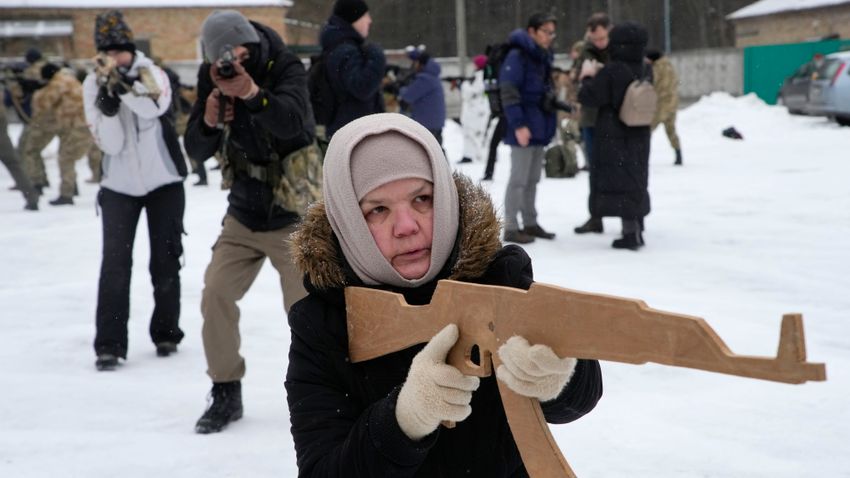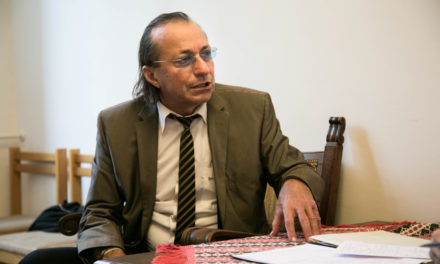We are in the third week of the invasion. Beyond the first big shock, outrage, panic attack, and other forms of emotional aerobatics. Perhaps now is the time to stop and reflect for a moment. What we did for the Ukrainians and what we didn't do. But mainly about why.
At first glance, it may seem that we have done everything that is humanly possible. We kicked the Russians out of the community of well-groomed nations. We began to methodically dismantle their economy. We delivered weapons to Ukraine and also volunteers. We admitted Ukrainians and expelled Russians. We even started flirting with the idea of military development. In a word
we have done everything we can think of, except direct confrontation with Russia and its more than 6,000 nuclear warheads.
We have done everything to make aggression as costly to the Russians as is physically possible. Why? Because
we want Ukrainians to fight. Fight on the beaches, fight on the airstrips, fight in the fields and streets, fight in the mountains.
To turn Ukraine into Vietnam and Afghanistan for the Russian occupier. If necessary, even for decades. At all costs.
This also shows that despite everything, we are extremely moral and brave people. Fearlessly, we posted the yellow-blue flag on our Facebook profile. We deserve a ten-second pat on the back.
Meanwhile, in Mariupol, a six-year-old girl died of thirst among the ruins of the city.
Because there are a number of things we haven't done.
When the war broke out, we didn't stop to think for a minute about what it was actually about. Nobody remembers that anymore, but
at the end of February, the war did not yet have existential stakes. It didn't have the totality of the wars in the Middle East, the relentlessness of jihad, the seeds of genocide.
What was the war about on the day when the guns started to rumble? About spheres of influence, alliance systems, great power competition, pride and paranoia. About things that nations have fought over for millennia and will continue to fight against each other for millennia. For limited purposes, with limited means. Instead of thinking about it,
we did our best to turn a limited war into an existential war.
First for the Ukrainians, then for the Russians. Unfortunately, all of this was inevitable. A civilization that acts with the emotional maturity of a bakfis in a raincoat doesn't see nuance. Either total Kantian peace or total war.
It is no coincidence that yesterday's moralizing pacifists suddenly found the meaning of their lives in war incitement.
We didn't even do the most basic thing, which would have been morally at least as important as supplying the Ukrainians with old killing tools called Anglians. Take a deep breath, try to swallow the frog of legitimate indignation, and de-escalate the conflict with a cool head. At all costs. Even if the most terrible thing that the human imagination can dream up happens, and the EU continues to expand eastward a few years later. Why? Because
there is no proportionality in upsetting the largest state in Europe with the largest state in the world.
Not even if the principle for which we stick the other's tail among the nettles is the holiest of principles: the right of a state to join some alphabet soup confederation.
We did not sit down to have an honest conversation with the Ukrainians about how this white world really works.
This would have been the last time to explain to the bride that the Russian groom wanted her more than us.
He wants it so much that he is willing to use violence for it. We don't. And then maybe we would have told him that we will support him from the stands, but ultimately he will have to fight this boxing match with the bear alone. And if we had been very good minds, we would have tried to convince him of the following:
If Nyestyerka succeeds in knocking out the bear after a hundred years of solitude and partisanship, the damage caused to Ukraine will never be in proportion to the expected benefit.
In the end, we could also have whispered to him that it is possible that if after the Great Patriotic War Ukraine comes to the Europa bar for refreshments, the porter will inform him that they do not serve piles of rubble.
We didn't do all of this.
The question arises, why not?
I know, I know, freedom, love, etc. There is no doubt that these elevated feelings also played a decisive role in the fact that we pushed the Ukrainian avatar of the West into the trap to fight the T-Rex - instead of ourselves.
But there was something else besides these. Something called the rage of aggrieved narcissism.
For decades, we told ourselves and the world tales that we were the ones who managed to solve the great mystery of history and human nature.
We managed to discover the secret recipe that eradicates the anarchy prevailing in the international system, the competition for scarce resources, and the war.
We even set up a showroom between the Urals and the Atlantic Ocean, where Neanderthals could come to admire the future and see for themselves how it works. This fiction served as the basis for an entire civilization's self-esteem and sense of superiority, especially after it was increasingly pushed into the background in the real competition with the Eurasian predators.
Then came the Cossacks, and on a cold February morning the myth of civilization collapsed.
The ruins buried the sense of collective superiority and replaced it with a rampage of irrational rage. This anger is the reason why it doesn't even cross our minds that, in addition to weapons, it would be worthwhile to send a message of de-escalation and compromise to Ukraine. And that visceral rage is why
for us, there is only one solution to this crisis: to obey the aggressor as much as possible and as strongly as possible, and if necessary, to fight against him.
Even to the last Ukrainian.
Robert C. Castel / Neokohn
Featured image: MN













